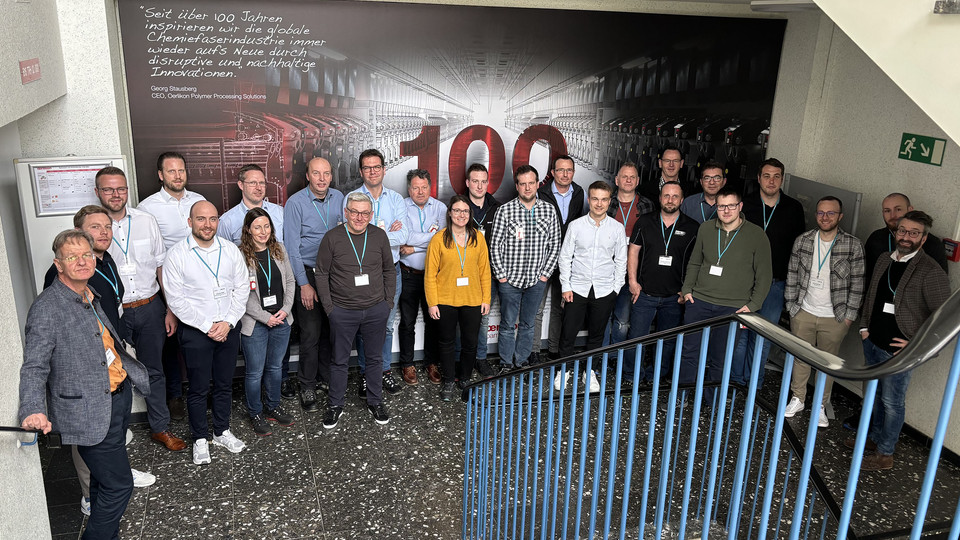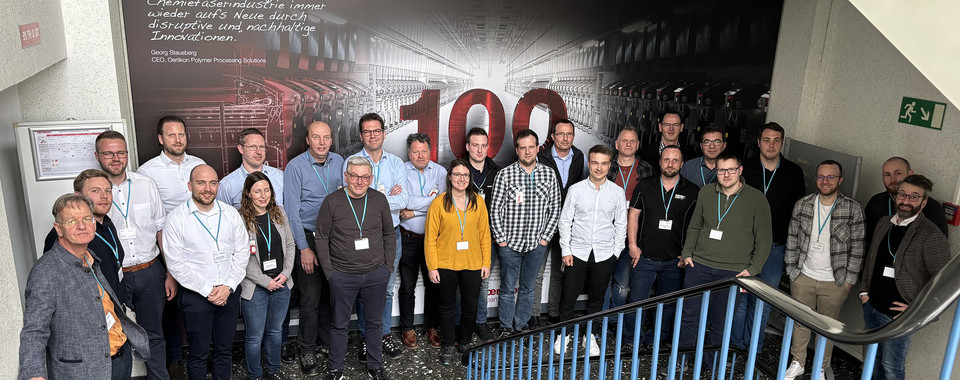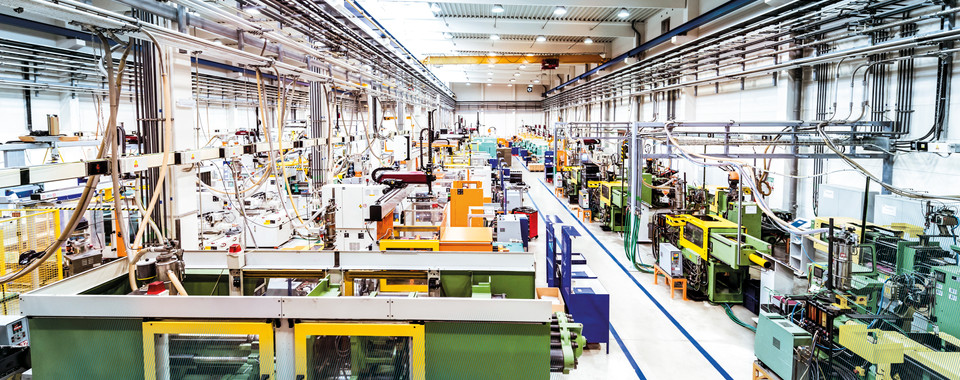"I warmly welcome you to the FELIOS practice day here at Oerlikon Barmag in Remscheid, and I'm delighted that so many of you have found your way to us. I'm especially pleased that, as a FELIOS customer from the very beginning, we can give you an insight into the practical application and report to you how the software - honestly and authentically - has been successfully optimizing our production processes for many years," said Stefan Göbel, Head of Operations at Oerlikon Barmag, who witnessed the software's early days firsthand. As part of the FELIOS on-site days, a total of 30 interested specialists and managers from the areas of production, logistics, purchasing, and SCM met in April 2024 at Oerlikon's North Rhine-Westphalia segment headquarters in Remscheid to exchange experiences with project participants and the host user, learn about the advantages of a digital planning solution like FELIOS, and gain exclusive insight into on-site production.
Typical challenges in mechanical engineering
After a warm welcome from the host, Oerlikon Barmag, we gave a short introduction to INFORM and our software solutions. Afterwards, all interested participants had the opportunity to introduce themselves as well as their companies and to talk about the daily challenges in their production processes. Aspects such as the time-consuming planning process, manual planning methods, difficult-to-meet delivery deadlines, and generally hectic workflows were frequently mentioned. All participants agreed that, above all, they wanted transparency across the entire value chain, reduced effort, greater adherence to deadlines, and greater reliability in their production processes.
Following the participants' introductions, the focus was on Oerlikon Barmag and the use of its intelligent software. As a market and technology leader, the company has been manufacturing spinning systems for chemical fibers since 1922, which are used in applications such as clothing, geotextiles, automotive engineering, and civil and structural engineering. The multi-story customer systems, which fill entire factory halls with modular construction, now have the capacity to spin and wind 120,000 synthetic fiber spools per day, each weighing 5 kg. "That corresponds to a total area of 24 football fields," Göbel explained to us and the attendees, highlighting the immense scale of the production.
Silent intelligence with great trust
In 1999, Oerlikon Barmag migrated group-wide to SAP as its leading ERP system. Initially, it was assumed that SAP could replace FELIOS. However, since SAP couldn't handle complex order networks and lacked detailed planning capabilities, FELIOS was quickly reactivated. In 2014, mechanical engineering followed suit, in addition to pump manufacturing, and was integrated into the intelligent software. "Today, FELIOS is the silent intelligence within the company, one that enjoys our greatest trust," Göbel proudly describes the software's advantages. FELIOS is currently also being introduced in plant engineering at the Neumünster plant.
After the insightful theoretical part, we and all the participants moved on to a practical experience with a factory tour, where we gained direct insight into production at Oerlikon Barmag. The tour offered the opportunity to see FELIOS in action, both in pump construction and mechanical engineering, and to ask direct questions to employees and experts. After the insight into production, all participants met for lunch to exchange ideas and share their impressions in a relaxed atmosphere.
Best informed
The final part of the practice day consisted of a short demonstration of the FELIOS software interface by Stefan Göbel and representatives of the planning and control team, as well as a large discussion session in which the participants could reflect on what they had already seen and what they would like to understand better. The specialists and managers were particularly interested in the interface connection to existing ERP systems and the typical topic of data availability and quality. Here, we, as experts, were able to explain that FELIOS can be connected to all common ERP systems via an interface and that, especially for SAP customers, we have a special SAP team that specializes in this interface connection. On the topic of data, we were able to explain that data quality does not necessarily mean that the required data must be absolutely complete and error-free before implementation, but simply that the existing data is sufficient for this purpose. Daily production planning and sequencing, which are predominantly required by mechanical engineering companies, can in most cases be created based on this data using intelligent planning tools. The cleaning and maintenance of the data is also less complex than often assumed and is often associated with such a project.
With that, an insightful and engaging on-site day came to an end. We would like to thank our valued customer Oerlikon Barmag and Stefan Göbel's team for their hospitality, and everyone present for the great and productive exchange! We're already looking forward to the next practice days!
If you have become curious and would like to participate in one of our practical days, you can find all further information here.











